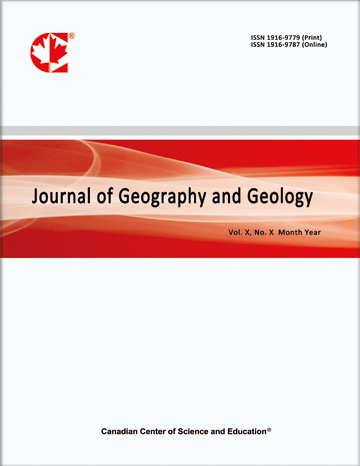Traditional Irrigation Practices, High Crop Diversification and Multiple Agricultural Cycles in Wastewater Irrigation Farming in Peru Urban Areas, Zambia
- Evaristo Kapungwe
Abstract
Studies conducted on peri urban wastewater irrigation agriculture in Zambia have not adequately tackled issues pertaining to farmer managed irrigation systems in heavy metal contaminated wastewater irrigation farming.The study focused on characteristics of farmer managed irrigation systems in wastewater irrigation farming contaminated with heavy metals at New Farm in Mufulira and Chilumba Gardens in Kafue. The study objectives were to ascertain the nature of irrigation practices and types of crops grown at the two study sites in Zambia. It was hypothesised that: (i) the nature of irrigation practices and types of crops were not significantly different at the two study sites in different seasons. (ii) the agro-ecological factors did not significantly influence the nature of irrigation practices and types of crops. The method comprised observation of sources of water supply, methods of irrigation and types of crops grown coupled with agro-ecological factors such as soil, slope and drainage at field plots located at regular intervals along transects established in the stratified sampling zones. The results indicated that farmer managed irrigation systems at the two study sites were characterised by multiple sources of water supply, multiple methods of irrigation, relatively high number of crops per study site equivalent to twenty types of crops grown per study site and relatively high number of crops per field plot ranging from one crop to ten crops per field plot coupled with multiple cycles of agricultural practices. The nature of irrigation practices and types of crops were influenced by a combination of agro-ecological factors. In conclusion, the farmer managed irrigation systems in wastewater irrigation farming were characterised by traditional irrigation practices, high crop diversification and multiple cycles of agricultural practices which were typical of traditional farmer managed irrigation systems. It can be argued that the crop cultivators have adapted the rural traditional irrigation systems’ practices to the peri urban wastewater irrigation systems in Zambia which confirmed the findings from other studies in developing countries. The study findings will be used to select and implement appropriate agricultural practices which can mitigate the negative effects of heavy metal contamination.- Full Text:
 PDF
PDF
- DOI:10.5539/jgg.v5n4p106
Journal Metrics
(The data was calculated based on Google Scholar Citations)
Google-based Impact Factor (2018): 11.90
h-index (January 2018): 17
i10-index (January 2018): 36
h5-index (January 2018): 13
h5-median(January 2018): 15
Index
- BASE (Bielefeld Academic Search Engine)
- Bibliography and Index of Geology
- CiteFactor
- CNKI Scholar
- Educational Research Abstracts
- Excellence in Research for Australia (ERA)
- GeoRef
- Google Scholar
- LOCKSS
- NewJour
- Norwegian Centre for Research Data (NSD)
- Open J-Gate
- PKP Open Archives Harvester
- SHERPA/RoMEO
- Standard Periodical Directory
- Ulrich's
- Universe Digital Library
- WorldCat
Contact
- Lesley LuoEditorial Assistant
- jgg@ccsenet.org
